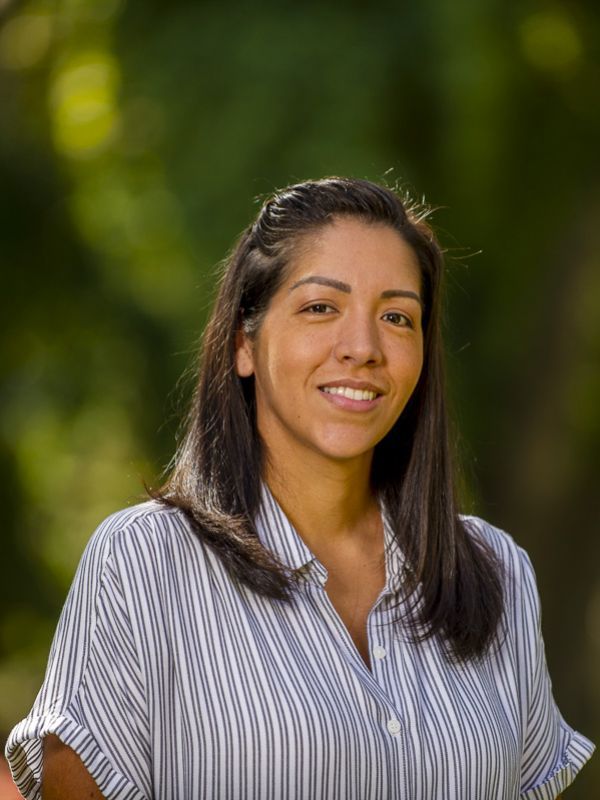
Cristina Ortiz
2017 PhD, Social Work, University of Chicago, School of Social Service Administration
2011 AM, Social Work, University of Chicago School of Social Service Administration
2008 AM, Social Sciences, University of Chicago
2005 BA, Sociology, University of California-Berkeley
I think of my classroom as a model for what my students will need in the real world. I ask students to spend a significant amount of time thinking critically about themselves and all of the factors that contributed to their development.
I place an emphasis on self-awareness because I don’t see my job as simply teaching course content – instead, I am training and teaching individuals to develop a greater understanding of their position in our society compared to others. I want students to gain an understanding of the lives and experiences of those around them so that they can use this knowledge to be better people and live more fulfilling lives – both personally and professionally.
I have found that field of sociology aligns particularly well with this goal and provides students with a deeper understanding of many of their identities that they previously took for granted, such as their class, age, race, ability, and religion, and the way in which it shapes their opportunities in life.
My approach to teaching is to create an environment where students can relate to course material and incorporate the content into their own life experience. Students in my courses read textbooks, journal articles, op-eds, and blogs. While my classes do consist of lecturing and I find that lecturing often provides a critical foundation for their knowledge development,
I also am committed to providing students with experiences that have helped them grasp the course material immediately, rather than notes that they then have to attempt to decipher at a later date. I spend increased class time on activities that deeply engage students such as role playing, small group work, presentations, and debates. In order to meet this generation of students where they are at, I also use online simulations and quiz applications, as well as in-class analysis of online material such as blogs, Facebook posts, or tweets.
Because I believe that any great teacher is also a great mentor, I prioritize building relationships with students. I appreciate being able connect with students individually and see them grow both personally and academically. Outside of formal advisement, my students know that my door is always open to discuss major requirements, internship and job opportunities, time management, life events, and much more.
I am a scholar of race and ethnicity, with an emphasis on parental racial socialization. Parental racial socialization is the process by which parents teach their children about the importance of their race in society and how to navigate the world accordingly. As a qualitative scholar, I continue to conduct original research in my primary areas utilizing multiple methods to collect my data including in-depth interviews and participant observation.
The use of participant observation in my research has allowed me to view dimensions of the racial socialization process that have been overlooked by empirical work in this field for over thirty years. The combination of the two not only produce uniquely rich data, but also provide me with the opportunity to build relationships with my research participants.
My current research examines the racial and cultural socialization processes as they occur in families of all racial and cultural backgrounds and the way in which the current social and political environments influence parents' strategies for teaching their children about race and culture.
My previous research explored the parental racial socialization process as it occurs in dual-minority multiracial families, families where both parents are minorities from different racial and ethnic backgrounds. Specifically, this research examined the racial socialization process as it occurs in nonverbal, indirect, and unintentional ways. My earlier work focused on how parents contribute to the development of their biracial Black/White multiracial child’s racial identity development.


